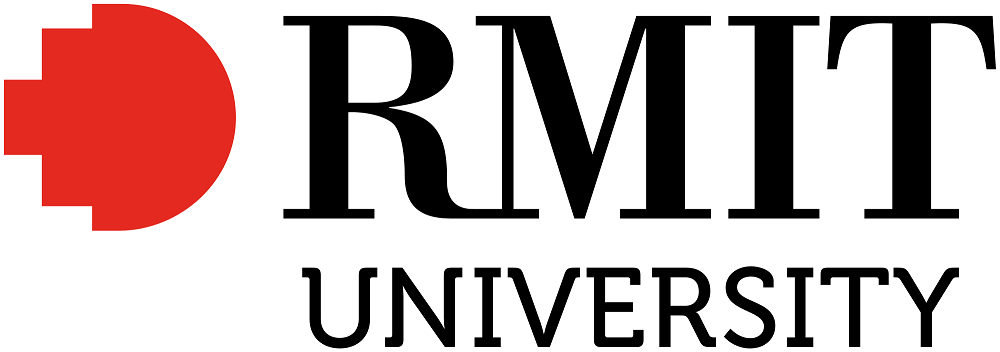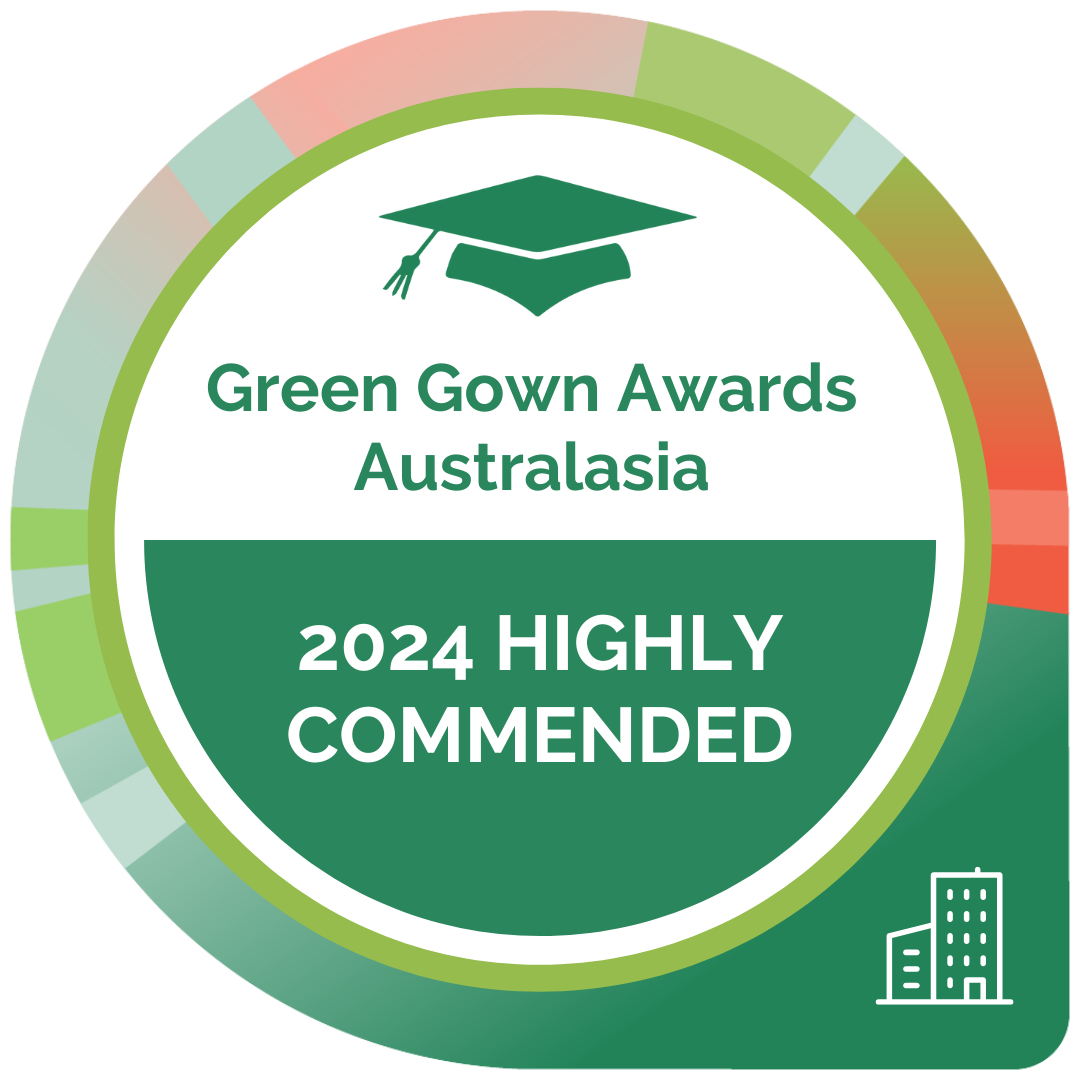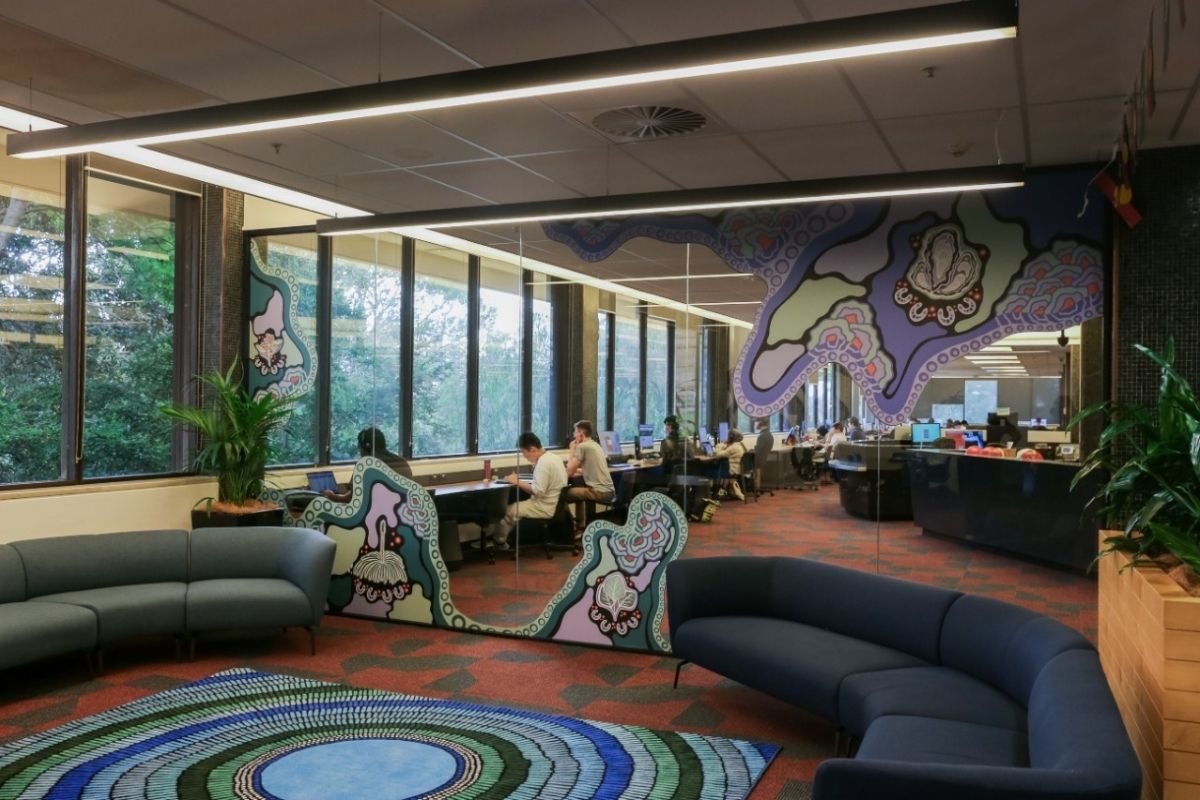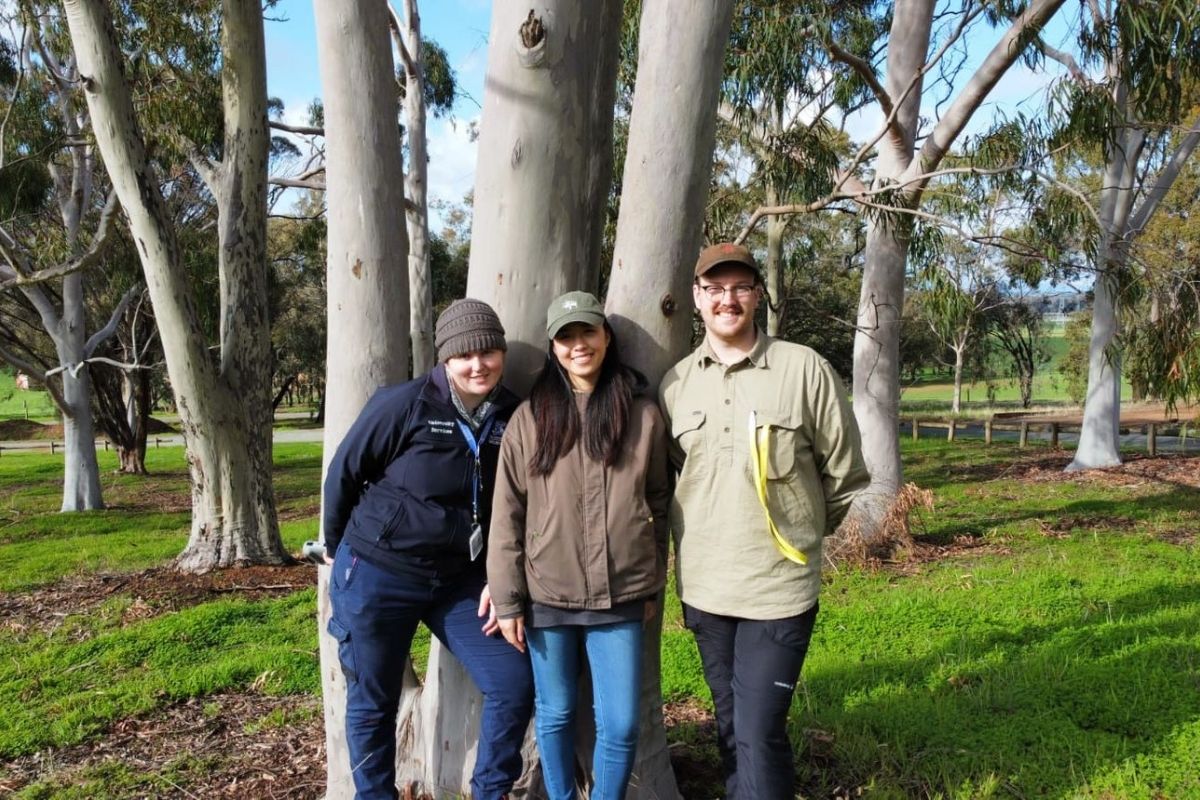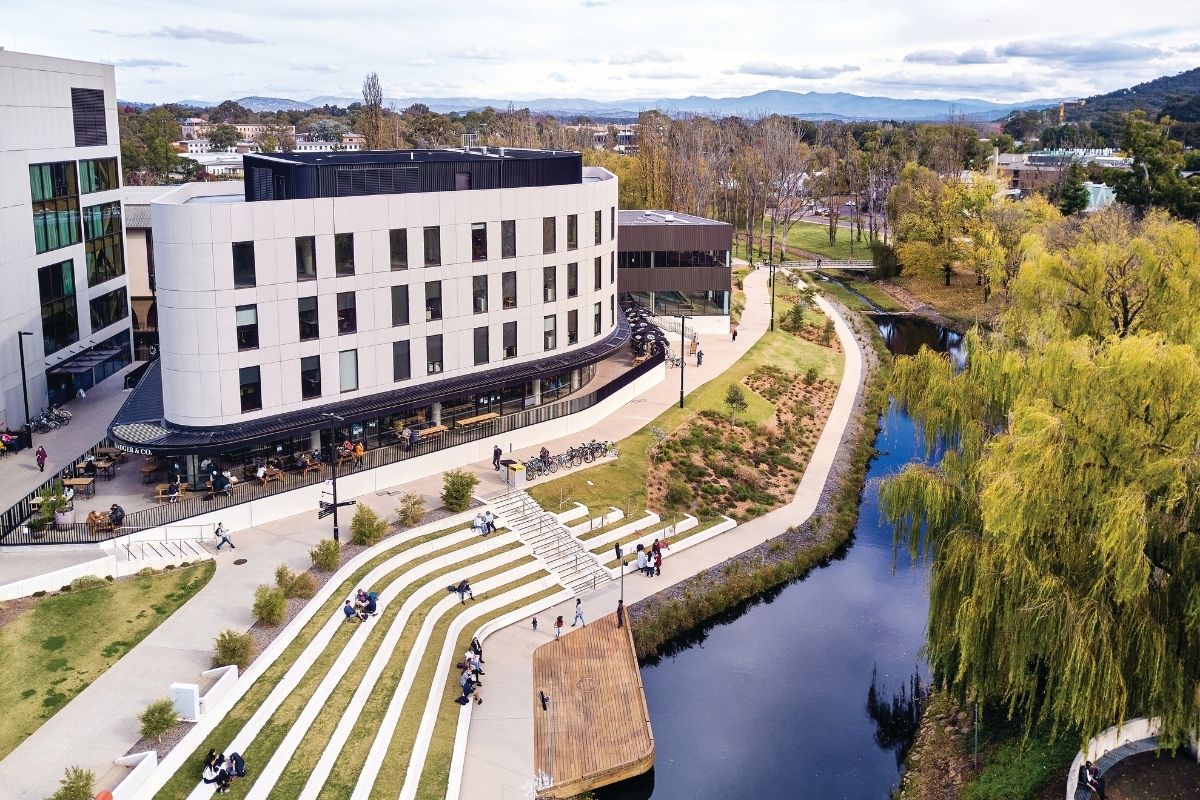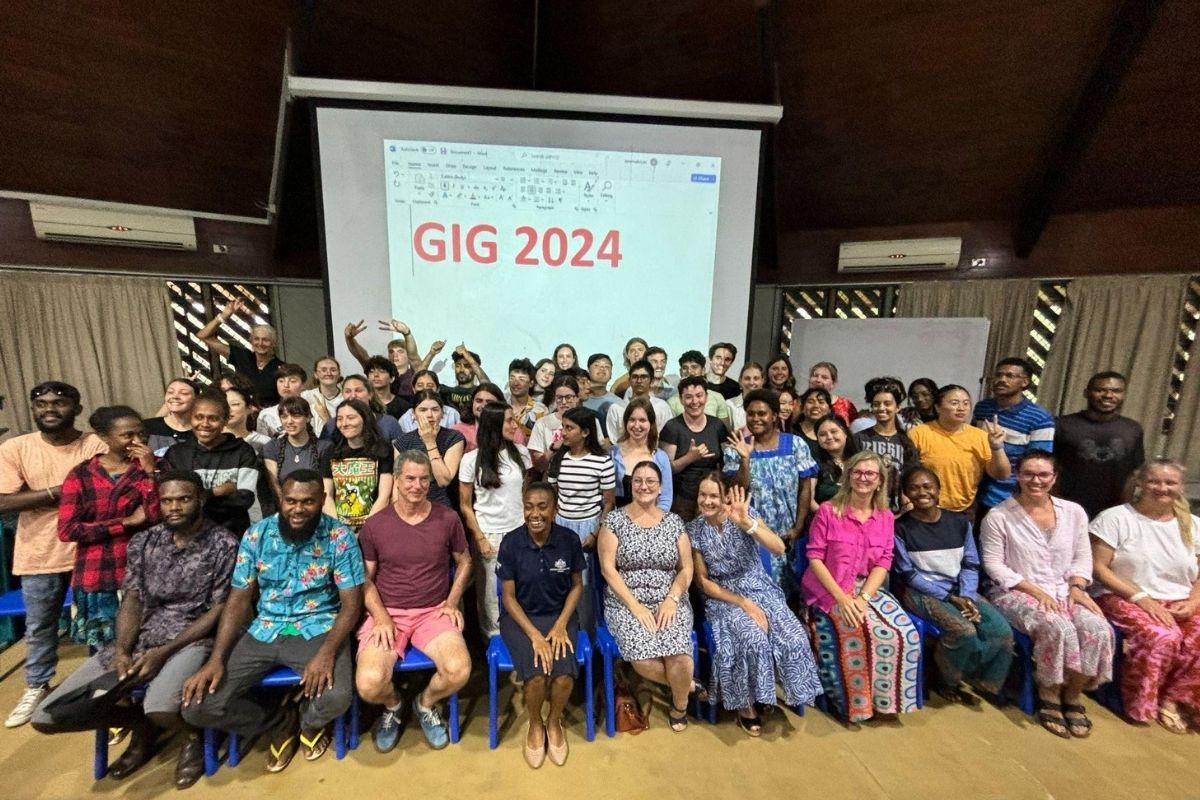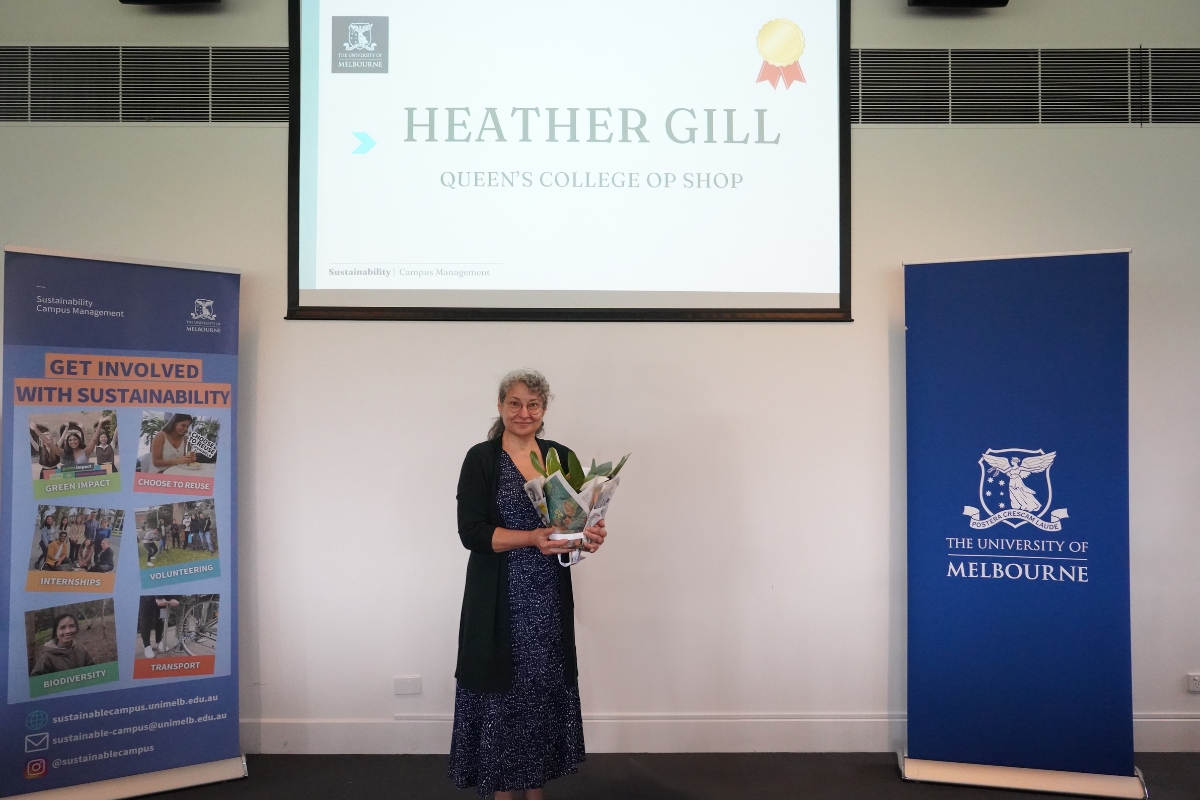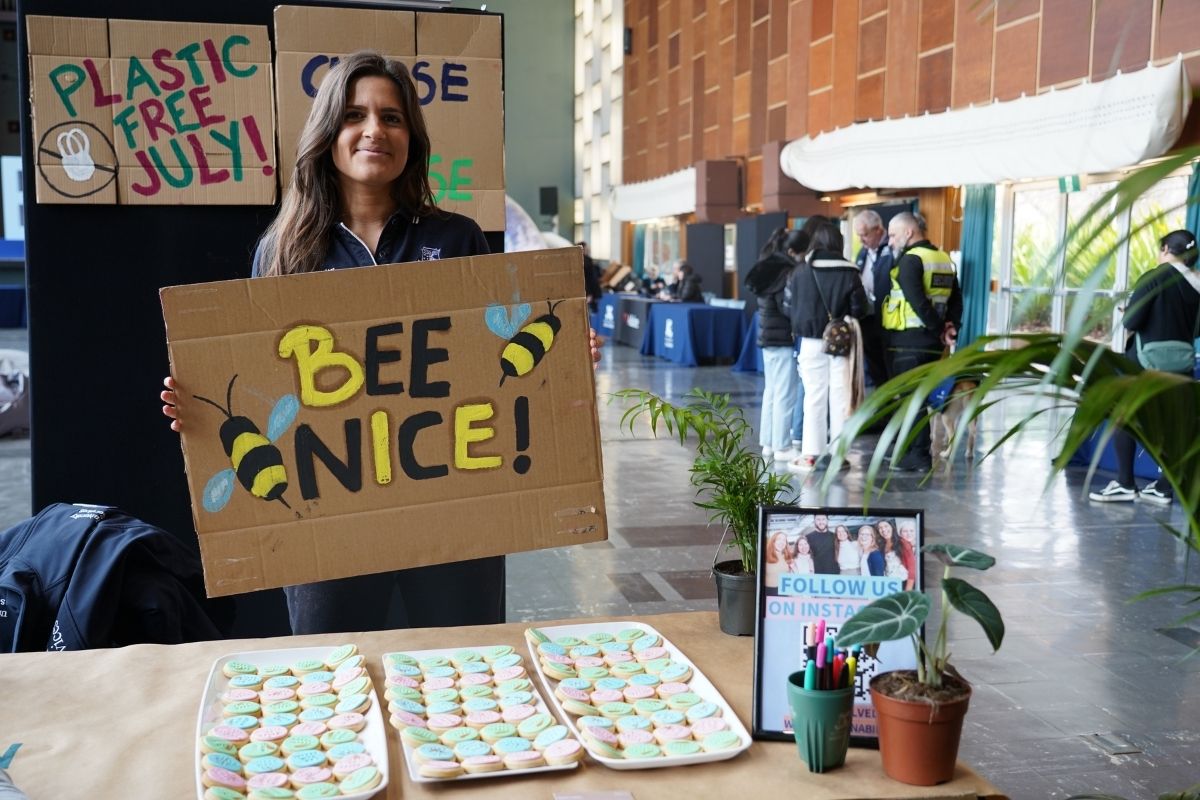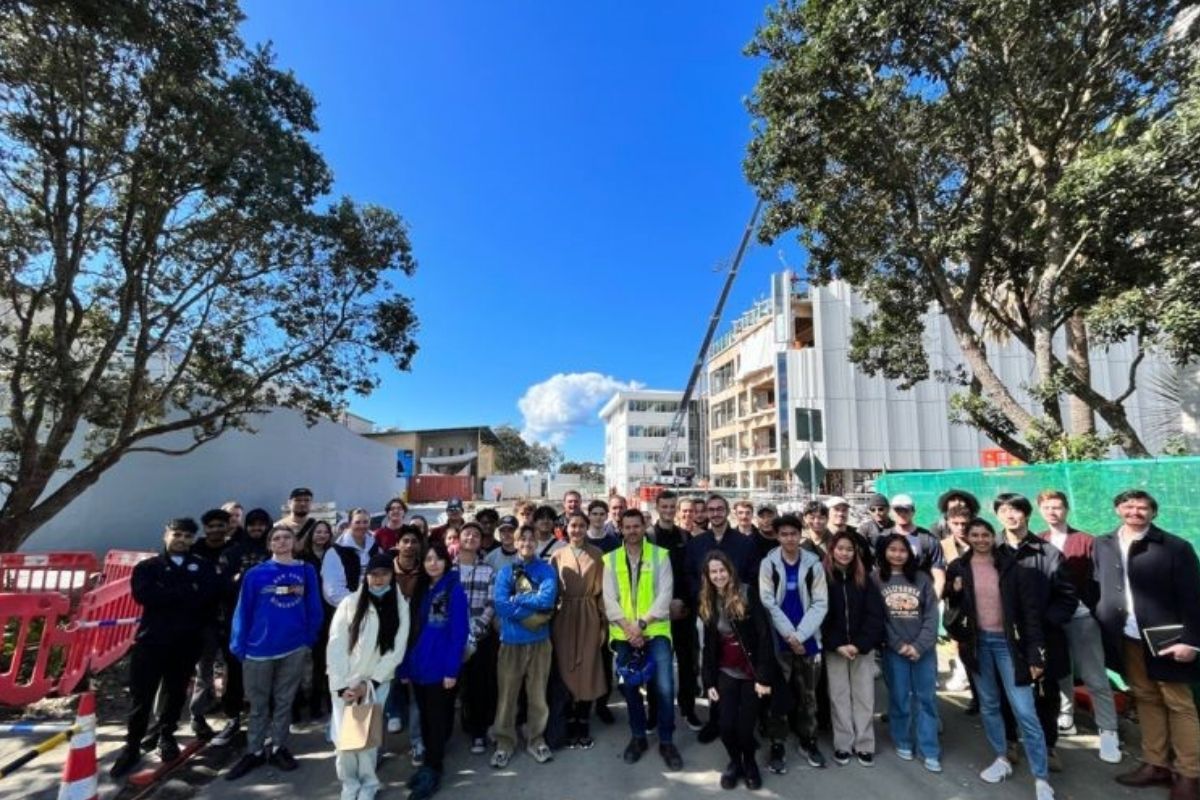Diversity, Equity and Inclusion/Highly Commended category
RMIT University developed the Sustainability & Equity Evaluation (SEE) Tool to ‘Weave Together Our Values’. The tool and its associated workshop and resources create an innovative approach to integrating equity, sustainability, and governance considerations into the university’s core decision-making processes. This tool was co-developed by the Sustainability, Diversity & Inclusion (D&I), and Indigenous Engagement teams over two years and was designed to embed RMIT’s values into strategic projects, policies, and operational practices. The SEE Tool facilitates a holistic evaluation process, ensuring that initiatives align with the university’s sustainability goals and the United Nations Sustainable Development Goals (SDGs).
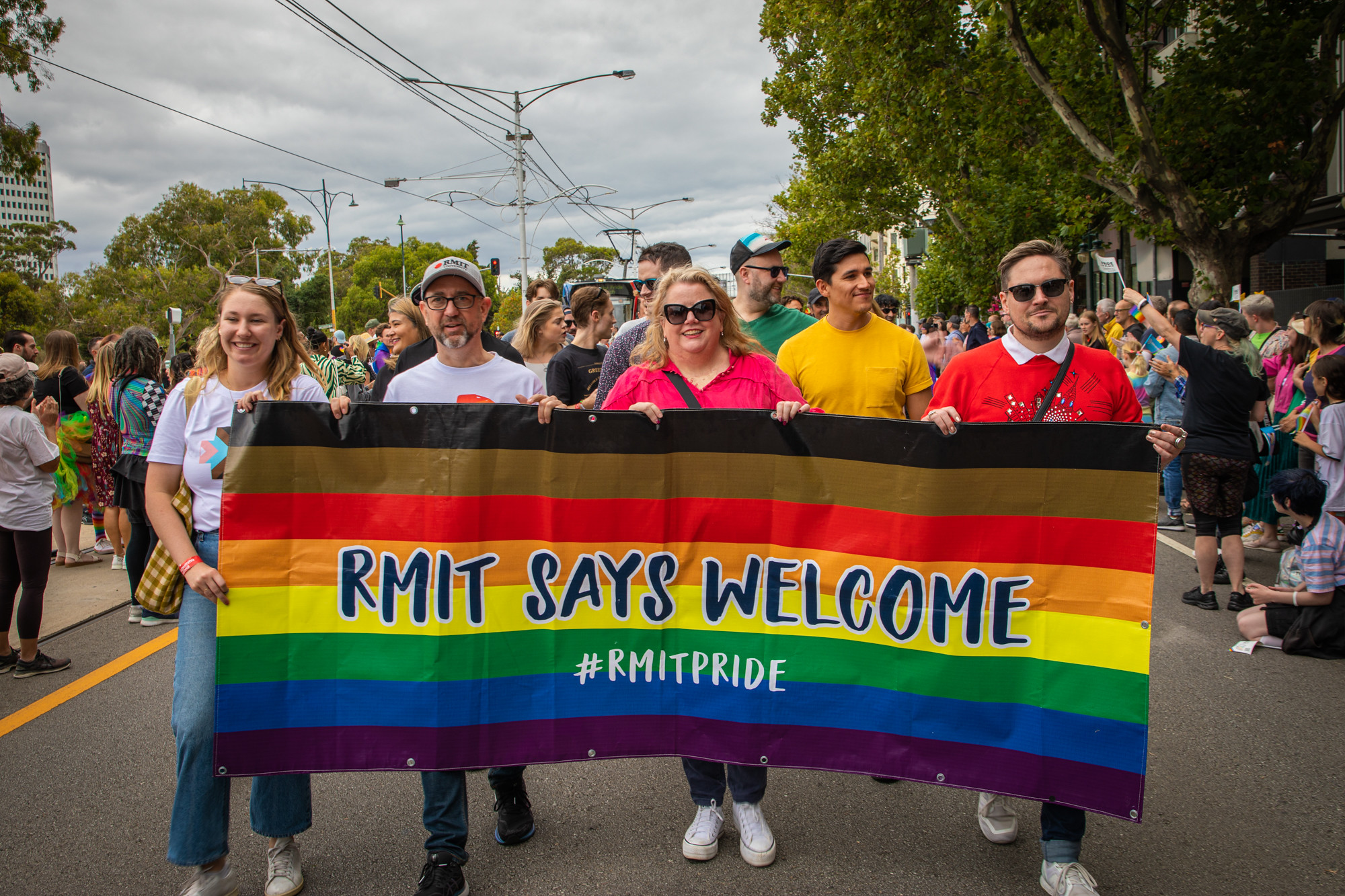
Environmental and Social Benefits
- Comprehensive Impact Assessment: The SEE Tool ensures thorough evaluations across environmental, social, governance and economic impact criteria, aligning initiatives with the SDGs and enhancing RMIT’s commitment to sustainable development. It also respects, preserves and integrates Indigenous knowledge and practices and ensures the self-determination of our Frist Peoples as a fundamental principle.
- Mitigation of Negative Impacts: By identifying potential negative impacts early, the tool enables the development of proactive mitigation strategies, minimising social and environmental impacts and allowing trade-offs to be well understood.
- Promotion of Diversity and Inclusivity: The tool’s equity and social impact criteria ensure that all initiatives promote diversity, inclusion, and equal rights, fostering a supportive environment for all RMIT stakeholders and wider community.
Leadership and Engagement
- Collaborative Development: The SEE Tool was developed collaboratively by a cross-functional team from Sustainability, D&I, and Indigenous Engagement, reflecting RMIT’s commitment to a unified approach to sustainability and equity.
- Broad Institutional Support: The tool has received widespread support across the university, with over 45 staff members (and counting) actively involved in its application and dissemination. Its adoption in strategic governance processes demonstrates strong leadership and commitment to institutional values.
- Training and Capacity Building: A ‘train the trainer’ model has been implemented to broaden the tool’s reach, empowering more staff to conduct evaluations and apply the tool’s principles in their work, thereby enhancing institutional capacity in sustainability and equity.
Significance to the Sector
- Innovative Framework: The SEE Tool is a pioneering approach within the higher education sector, integrating sustainability, equity, and governance into a single, scalable framework that can be applied to any initiative, regardless of size or scope.
- Replicability and Influence: RMIT’s approach to embedding the SEE Tool in its governance processes provides a replicable model for other institutions. The tool’s flexibility and comprehensive scope make it adaptable to various sectors, potentially influencing broader organisational practices.
Wider Societal Impact
- Enhanced Community Engagement: The SEE Tool promotes the inclusion of diverse voices in decision-making, particularly those from underrepresented groups, ensuring that the outcomes of university initiatives benefit the broader community.
- Social Responsibility: The tool’s focus on equity, sustainability, and good governance helps to embed social responsibility into RMIT’s culture, fostering a more inclusive and sustainable society.
- Long-Term Impact: As RMIT continues to apply the SEE Tool across its operations, the university’s projects and policies will have increasingly consistent and positive impacts on the environment and society, contributing to global sustainability efforts and the advancement of social equity.
The “Weaving Together Our Values” initiative at RMIT University, embodied by the SEE Tool, represents a transformative approach to integrating sustainability, equity, and governance into institutional processes. By fostering collaboration across departments and embedding these values into the core of its strategic decision-making, RMIT not only enhances its own operations but also sets a benchmark for the sector. This initiative exemplifies how universities can lead in promoting sustainable development, equity, and social responsibility on a global scale.
Top 3 learnings
Supported by

Category finalists
Diversity, Equity and Inclusion
Diversity, Equity and Inclusion
Highly Commended/Nature Positive
Highly Commended/Nature Positive
Climate Action/Highly Commended
Climate Action/Highly Commended
Diversity, Equity and Inclusion/Winners
Diversity, Equity and Inclusion/Winners
Highly Commended/Staff Champion
Highly Commended/Staff Champion
Highly Commended/Sustainability Leadership
Highly Commended/Sustainability Leadership
Past winners
Benefitting Society/Winners
Benefitting Society/Winners
Diversity, Equity & Inclusion in Sustainability/Winners
Diversity, Equity & Inclusion in Sustainability/Winners
Climate Action/Winners
Climate Action/Winners
Sustainability Institution of the Year/Winners
Sustainability Institution of the Year/Winners
Creating Impact/Winners
Creating Impact/Winners
Creating Impact/Winners
Creating Impact/Winners
Top 3 learnings
Diversity, Equity and Inclusion/Highly Commended category
RMIT University developed the Sustainability & Equity Evaluation (SEE) Tool to ‘Weave Together Our Values’. The tool and its associated workshop and resources create an innovative approach to integrating equity, sustainability, and governance considerations into the university’s core decision-making processes. This tool was co-developed by the Sustainability, Diversity & Inclusion (D&I), and Indigenous Engagement teams over two years and was designed to embed RMIT’s values into strategic projects, policies, and operational practices. The SEE Tool facilitates a holistic evaluation process, ensuring that initiatives align with the university’s sustainability goals and the United Nations Sustainable Development Goals (SDGs).

Environmental and Social Benefits
- Comprehensive Impact Assessment: The SEE Tool ensures thorough evaluations across environmental, social, governance and economic impact criteria, aligning initiatives with the SDGs and enhancing RMIT’s commitment to sustainable development. It also respects, preserves and integrates Indigenous knowledge and practices and ensures the self-determination of our Frist Peoples as a fundamental principle.
- Mitigation of Negative Impacts: By identifying potential negative impacts early, the tool enables the development of proactive mitigation strategies, minimising social and environmental impacts and allowing trade-offs to be well understood.
- Promotion of Diversity and Inclusivity: The tool’s equity and social impact criteria ensure that all initiatives promote diversity, inclusion, and equal rights, fostering a supportive environment for all RMIT stakeholders and wider community.
Leadership and Engagement
- Collaborative Development: The SEE Tool was developed collaboratively by a cross-functional team from Sustainability, D&I, and Indigenous Engagement, reflecting RMIT’s commitment to a unified approach to sustainability and equity.
- Broad Institutional Support: The tool has received widespread support across the university, with over 45 staff members (and counting) actively involved in its application and dissemination. Its adoption in strategic governance processes demonstrates strong leadership and commitment to institutional values.
- Training and Capacity Building: A ‘train the trainer’ model has been implemented to broaden the tool’s reach, empowering more staff to conduct evaluations and apply the tool’s principles in their work, thereby enhancing institutional capacity in sustainability and equity.
Significance to the Sector
- Innovative Framework: The SEE Tool is a pioneering approach within the higher education sector, integrating sustainability, equity, and governance into a single, scalable framework that can be applied to any initiative, regardless of size or scope.
- Replicability and Influence: RMIT’s approach to embedding the SEE Tool in its governance processes provides a replicable model for other institutions. The tool’s flexibility and comprehensive scope make it adaptable to various sectors, potentially influencing broader organisational practices.
Wider Societal Impact
- Enhanced Community Engagement: The SEE Tool promotes the inclusion of diverse voices in decision-making, particularly those from underrepresented groups, ensuring that the outcomes of university initiatives benefit the broader community.
- Social Responsibility: The tool’s focus on equity, sustainability, and good governance helps to embed social responsibility into RMIT’s culture, fostering a more inclusive and sustainable society.
- Long-Term Impact: As RMIT continues to apply the SEE Tool across its operations, the university’s projects and policies will have increasingly consistent and positive impacts on the environment and society, contributing to global sustainability efforts and the advancement of social equity.
The “Weaving Together Our Values” initiative at RMIT University, embodied by the SEE Tool, represents a transformative approach to integrating sustainability, equity, and governance into institutional processes. By fostering collaboration across departments and embedding these values into the core of its strategic decision-making, RMIT not only enhances its own operations but also sets a benchmark for the sector. This initiative exemplifies how universities can lead in promoting sustainable development, equity, and social responsibility on a global scale.
Supported by

Related finalists
Diversity, Equity and Inclusion
Diversity, Equity and Inclusion
Highly Commended/Nature Positive
Highly Commended/Nature Positive
Climate Action/Highly Commended
Climate Action/Highly Commended
Diversity, Equity and Inclusion/Winners
Diversity, Equity and Inclusion/Winners
Highly Commended/Staff Champion
Highly Commended/Staff Champion
Highly Commended/Sustainability Leadership
Highly Commended/Sustainability Leadership
Other finalists
Climate Action

Driving Towards Tomorrow’s Campus with Vehicle-to-Grid EV Technology
As part of Flinders University’s drive to innovate and become a leader in climate action, the University launched its Vehicle-to-Grid (V2G) initiative. This involved installing and maintaining 20x V2G and smart chargers for its growing electric vehicle fleet. Leveraging 100% renewable energy generated by ENGIE’s Willogoleche Wind Farm and Flinders University’s solar power systems, this enables the storage of renewable energy in EV batteries to be discharged on campus during peak demand periods. Hence, allows for these EV fleets to operate as a Virtual Power Plant (VPP) to deliver peak demand management and optimization of behind-the-meter generation.
Overall, this initiative demonstrates the reliability and scalability of bi-directional and uni-directional smart-charging systems for EVs in reducing GHG emissions while facilitating teaching, research, and innovation opportunities. Moreover, it exemplifies a sustainable and innovative solution to scale energy storage technology and increase renewables.
Sustainability Champion – Staff/Winners

Brandan Espe
Environmental Officer / Acting Grounds Supervisor
Brandan has brought over 50 federally listed Endangered species of plant into the James Cook University living collection, many of which have never been cultivated and are found in no other collection in the world.
Of these, over half have been sustainably wild collected, inclusive of field and clone data, so they can be used for ongoing conservation, research and teaching, the remaining being sourced from private and partner organisations through favours of service or trades.
He personally funded the project from 2019-2022, until funding was awarded for the program due to its success, with the program now being engrained into the Universities landscapes for ongoing management should he leave JCU, creating a threatened species legacy collection.
The program has now expanded beyond this, with an additional 48 species now funded for further addition, some of which are only known from less than 5 sightings in history.
Student Engagement

Sustainability Leaders creating real impact!
La Trobe created a unique Sustainability Leaders volunteering program to increase engagement with students on campus and empower them to act against waste and promote sustainability. It included the following initiatives:
- Promoting the reusable crockery implementation,
- Increasing knowledge action of other students on campus to diversion comingled recycling and organic waste from landfill.
- Focus on waste audits and data,
- Improved signage through new waste posters for students living on campus.
- Collaboration with Cirka (our cleaning and waste partner) to create a waste wall and;
- Learning all things sustainability (net zero, biodiversity, waste, reusables, engagement)
These initiatives yielded significant results and with a reduction in waste contamination by almost 40% at the residential buildings and engagement with over 80 groups of people for the Reusable Revolution.
Creating Impact

Where knowledge meets habits: Empowering students for a sustainable tomorrow
Our online Sustainability Challenges offer participants an engaging, self-paced learning experience centered around a specific United Nations Sustainable Development Goal (UNSDG). Requiring minimal resourcing and at zero-cost to participants, we’ve created replicable, compact, scalable, and impactful learning opportunities that result in real impact.
The Challenges follow a structured process that moves participants from knowledge gain to simple action to celebration, to establish small but mighty habits relating to waste and carbon emissions. This approach recognises that knowledge alone is often insufficient to drive behaviour change, and that ease of action and celebration are crucial components in creating sustainable habits.
Sustainability Champion – Staff/Winners

Catherine (CeeJay) Donovan
Veterinary nurse – Anaesthesia
From establishing the Massey Vet School Green Team to leading impactful initiatives, my commitment to environmental sustainability has been making waves. With the help of my team, I have accomplished numerous small, yet meaningful actions, including integrating a sustainability lecture for final year vet students and implementing battery recycling alongside rechargeable battery use. Our larger projects encompass the introduction of green waste and soft plastics recycling bins, an energy audit resulting in power-saving measures, and playing a part in a successful rubbish audit. I spearheaded the ‘6 in 6’ campaign, empowering individuals with six simple steps for workplace sustainability. Through the SustainaVet social media pages I help to educate and inspire peers nationwide. As the Massey School of Veterinary Science sustainability champion, I had the privilege of speaking at the annual veterinary conference on sustainability in clinical practice. Currently I’m conducting pioneering research on responsible cat waste disposal. Together, we’re forging a greener future, one initiative at a time.
Sustainability Champion – Student

Louis Walmsley
SDG Coordinator Monash Association of Sustainability, Office Bearer Monash Student Association’s Environmental and Social Justice Department, Masters of Environment and Sustainability Student
Louis is an exceptional student sustainability leader at Monash University. His passion and dedication to sustainability have made a significant impact on the community. Louis’s values revolve around sustainability, which is evident upon meeting him. He actively participates in various sustainability groups, demonstrating his commitment to creating a more environmentally conscious society.
One of Louis’s notable involvements is with Precious Plastic Monash, where he organizes remarkable events and fosters collaboration among like-minded individuals, student groups, and staff. His contributions to the Monash Association of Sustainability have allowed him to conduct valuable research on plastic usage and climate action, resulting in positive changes within the university.
Through his work with the Monash Student Association, Louis has engaged hundreds of students in fun and interactive sustainability initiatives. He took the initiative to organize a sustainability food fair, which was one of the largest sustainability-related events held at Monash post-COVID. This accomplishment is a true testament to Louis’s hard work and creativity.
Louis is an outstanding student leader whose efforts in sustainability have had a lasting impact on Monash University and its community. His inspiring nature resonates with everyone who knows him.

